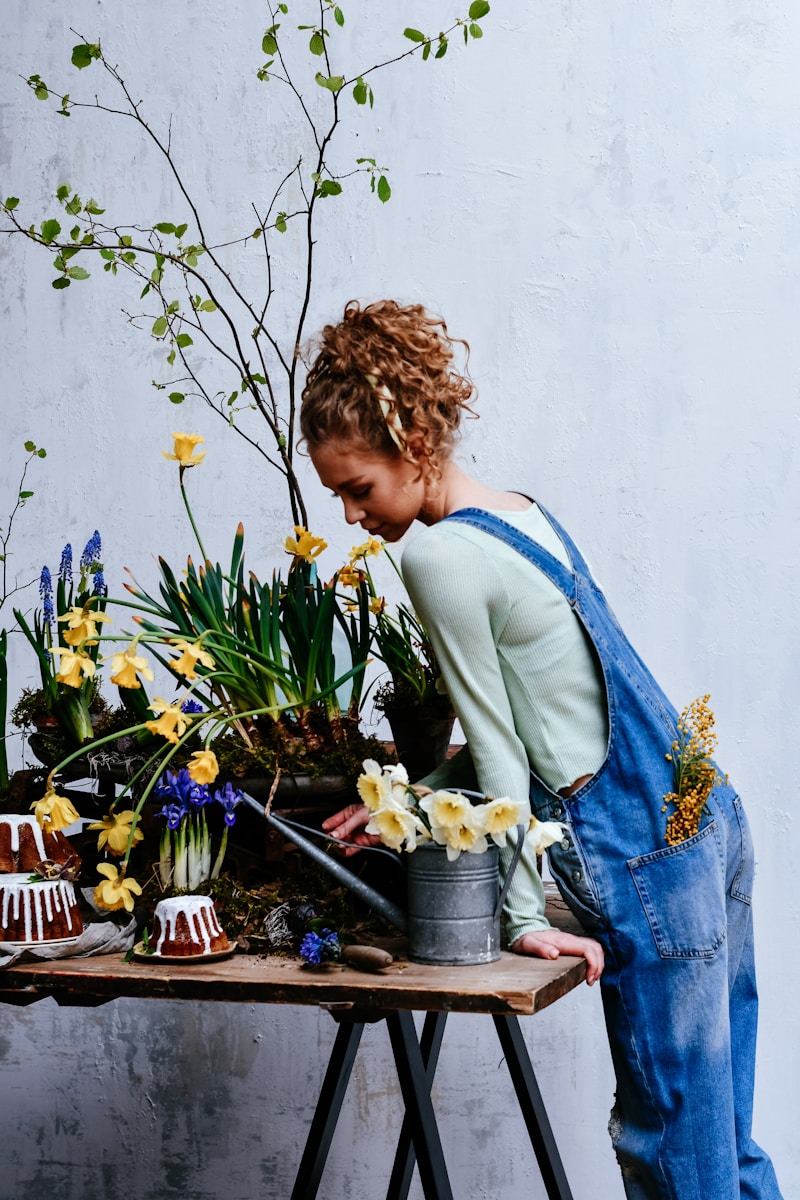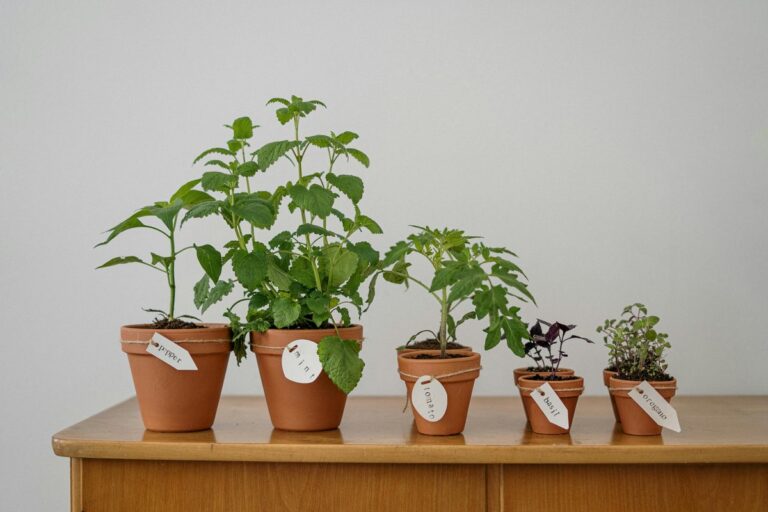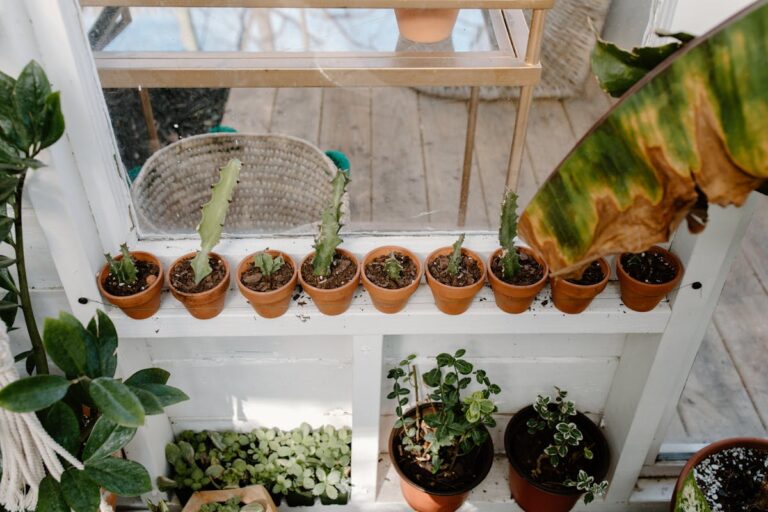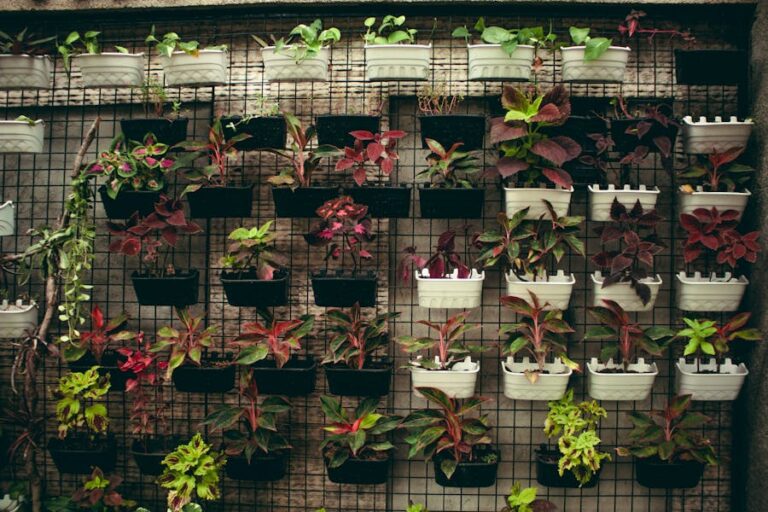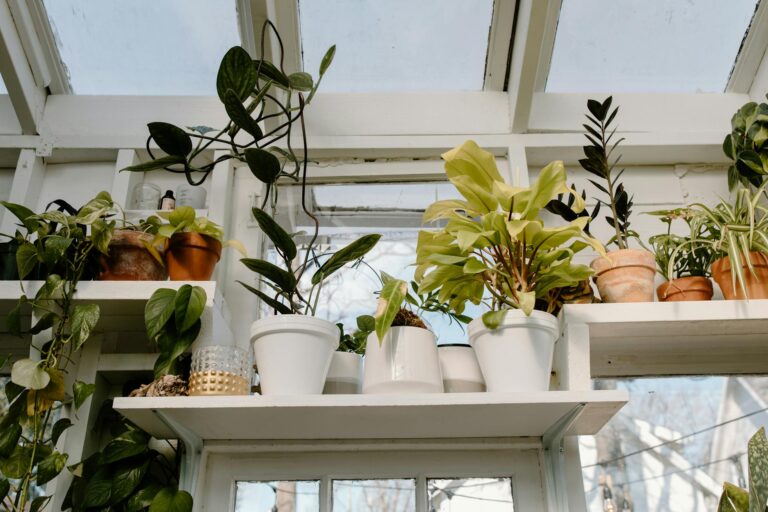The Calming Effect of Watering and Caring for Houseplants: Simple Ways to Reduce Stress Daily
Ever notice how spending time with your houseplants just feels good? There’s something about watering and caring for them that can turn a hectic day into a peaceful moment.
When you focus on your plants, it’s like hitting pause on everything else. The simple act of pouring water or checking leaves brings a quiet sense of calm.
Many people find this routine helps them unwind. It’s a gentle way to ease stress and settle your thoughts.
The act of watering and caring for plants can lower your heart rate and make you feel more at ease. Getting involved with your plants offers a chance to slow down and focus on something gentle and natural.
This can bring comfort in your daily life.
Mindful watering routines help focus attention and reduce anxiety
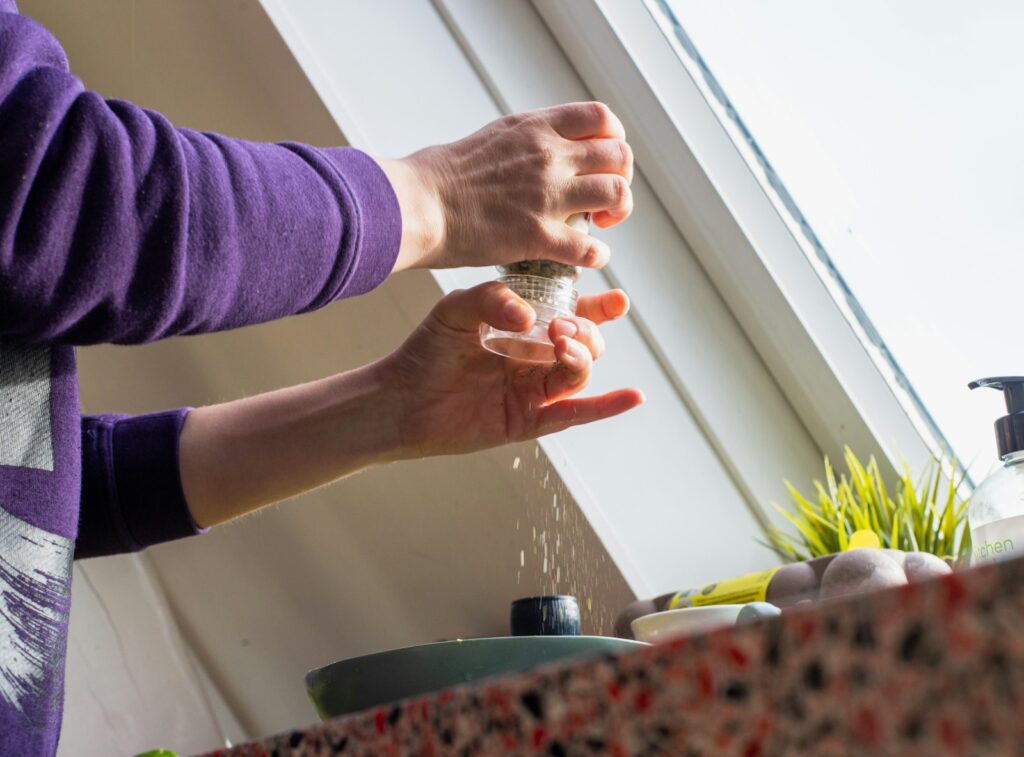
Watering your houseplants with care brings your focus to the present moment. Paying close attention to the simple action of pouring water lets you pause from daily worries.
This small routine can gently lower anxiety. You can notice the sound of water, the feel of moisture, and the way your plants respond.
These sensory details help your mind stay focused. Even just five minutes of mindful watering can make a difference.
Switching from “doing” to “being” while watering helps you feel calmer. Your attention shifts from racing thoughts to a peaceful task.
Touching soil and leaves grounds you in the present moment
Touching soil or leaves draws your attention to the here and now. The cool, crumbly soil feels real beneath your fingers.
This simple sense helps you pause and forget worries for a while. Feeling the leaves’ texture connects you with the plant’s life.
It reminds you that you are part of nature. This can calm a busy mind and slow down racing thoughts.
The small tasks of caring for plants, like gently touching leaves or pressing soil, give your hands something soothing to do. These actions help stop anxious feelings by focusing your mind on gentle, caring movements.
Being close to your plants with your hands grounds you. It helps you notice little details—the smell of dirt, the shape of the leaves, and the way the soil feels.
Observing plant growth boosts patience and calmness
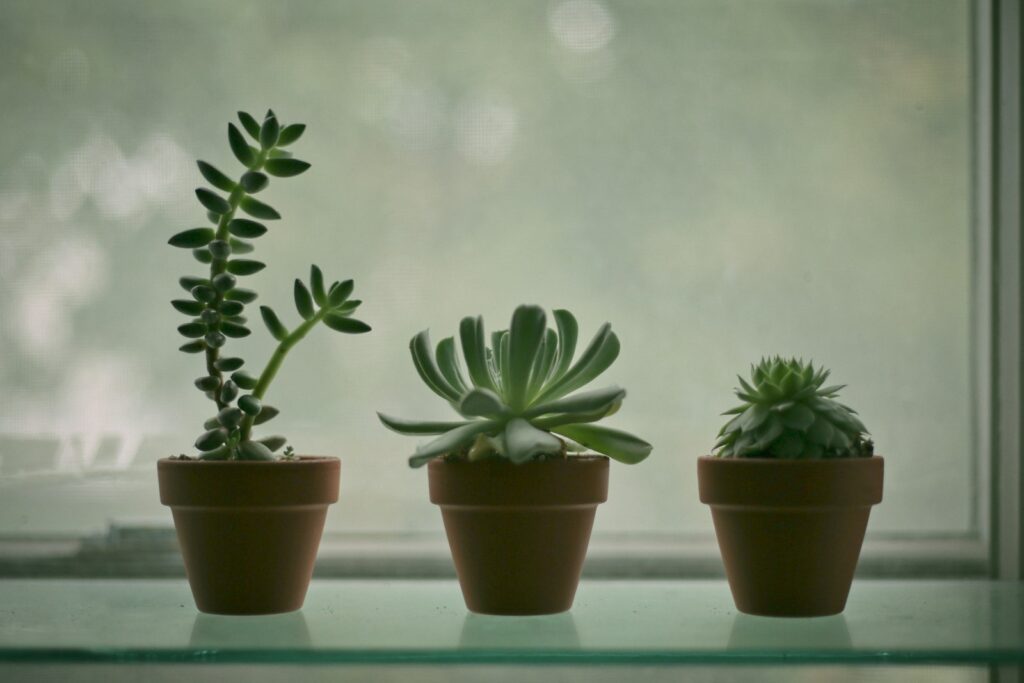
Watching a plant grow teaches patience. Plants change slowly, so you learn to notice small changes over time.
This slow growth helps you slow down too. Taking care of plants asks you to pay attention.
You notice when leaves turn greener or new shoots appear. This focus can calm your mind and bring a peaceful feeling.
Seeing your plant thrive gives you a quiet sense of success. It reminds you that good things take time.
Your care and patience create a bond with your plant. This connection can make you feel more grounded and present.
Aromatic plants like lavender enhance relaxation during care
Caring for aromatic plants like lavender adds something special to your routine. Their scent can help you feel calm and relaxed while you water and tend to them.
Lavender is known for its soothing smell. Taking a moment to breathe in the scent while caring for your plants can make your experience more peaceful.
Adding other aromatic plants like rosemary or lemon balm can bring similar benefits. Their gentle scents work alongside lavender to make your space fresh and calming.
By including plants with nice smells in your routine, you create a small, relaxing ritual. This can make your daily plant care feel like a break that helps your mood and reduces tension.
The sound of water trickling promotes a peaceful atmosphere

As you water your houseplants, the soft sound of water trickling can help create a calm space. This gentle noise works like natural white noise, masking louder, sudden sounds that might distract you.
The steady flow of water can help you feel more relaxed. It signals your brain to slow down and breathe.
You might notice that the sound helps clear your mind. It brings a sense of balance and peace, which is great after a busy day.
Adding water sounds to your plant care routine can turn a simple task into a calming ritual. Listening to water trickle can make your home feel more peaceful and inviting.
Caring for plants lowers heart rate and blood pressure
Spending time caring for houseplants helps your body relax. Tasks like watering or repotting help lower your heart rate.
Your blood pressure can drop too. Lower blood pressure means less strain on your heart and blood vessels.
Scientists have found that simply interacting with plants reduces stress hormones in your body. These hormones, like cortisol, usually make your heart beat faster and raise blood pressure during stressful moments.
Taking care of plants gives you a quiet break from busy or stressful tasks. Even small actions, such as touching the soil or trimming leaves, can have a soothing effect on your body.
So, when you care for your plants, it is like giving yourself a calm moment. Your heart rate slows, your blood pressure drops, and your body relaxes.
Visual greenery creates a soothing environment for the mind

Looking at green plants can help your mind feel calmer. The color green is gentle and easy on your eyes.
Having plants around makes your space feel peaceful. Simple things like a peace lily or a pothos add a fresh, natural touch.
Your brain enjoys the visual richness plants bring. Focusing on greenery can improve your attention and help clear your thoughts.
The shapes and colors of plants give your mind a quiet place to rest. Even small plants on your desk have a positive effect.
By adding plants, you create a calm spot for yourself. It’s like giving your brain a small, soothing break during a busy day.
Regular plant care encourages mindfulness and presence
Caring for your plants means focusing on simple, everyday tasks like watering and pruning. These actions help bring your attention to the present moment.
Taking care of plants gives you a chance to slow down. You become more aware of small details, like the texture of leaves or the smell of soil.
Making plant care part of your routine adds purpose to your day. The regular tasks create a rhythm that can feel comforting.
Spending time with plants invites you to be patient and gentle. Watching them grow reminds you to appreciate small changes.
Watching plants thrive gives a sense of accomplishment
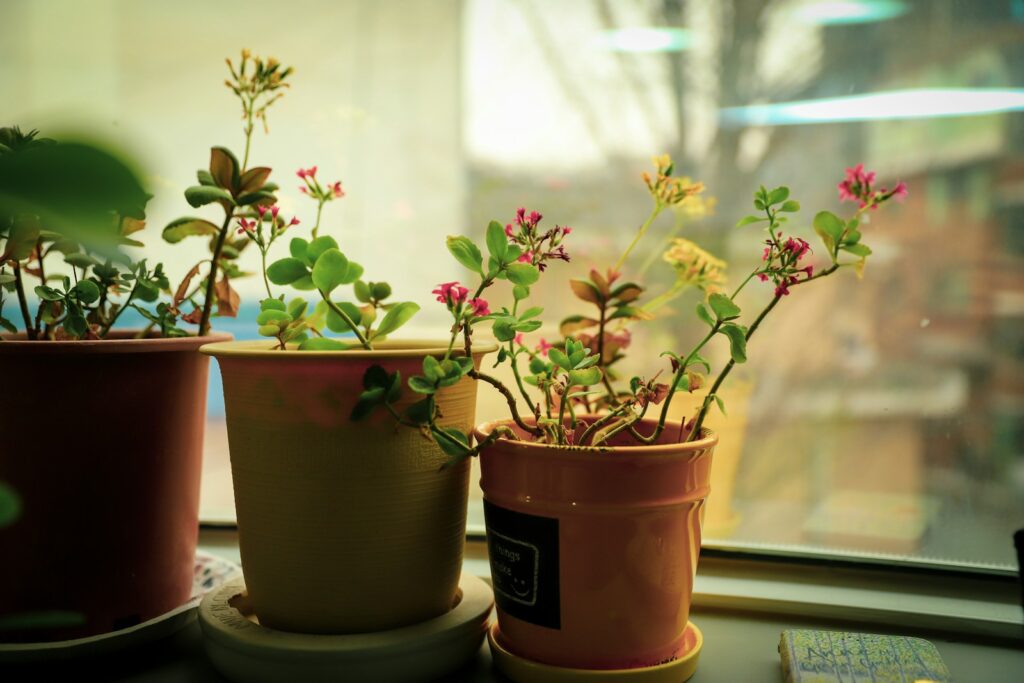
Caring for houseplants lets you see the results of your efforts grow right before your eyes. Watching a plant get bigger and healthier shows you that you can nurture life.
Taking time to water and tend your plants helps you focus on something positive. It gives you small wins that add up over time.
Each new leaf or flower is proof that you are making a difference. This sense of accomplishment can make your daily routine feel more meaningful.
Therapeutic gardening improves emotional well-being
Caring for houseplants creates a small, peaceful world that can help your mood. The act of watering and nurturing plants gives you a sense of purpose and calm.
Gardening slows your mind. It helps you focus on the present moment.
Taking care of plants also brings a feeling of accomplishment. Watching your plants grow and thrive can boost your self-esteem and make you feel happier.
Connecting with living things can increase your sense of joy. Houseplants add life and color to your space, making it feel more inviting and comforting.
Gardening encourages you to be patient and gentle with yourself. You learn that growth takes time, both for plants and for your own emotional health.
The Science Behind the Calming Effect of Houseplant Care
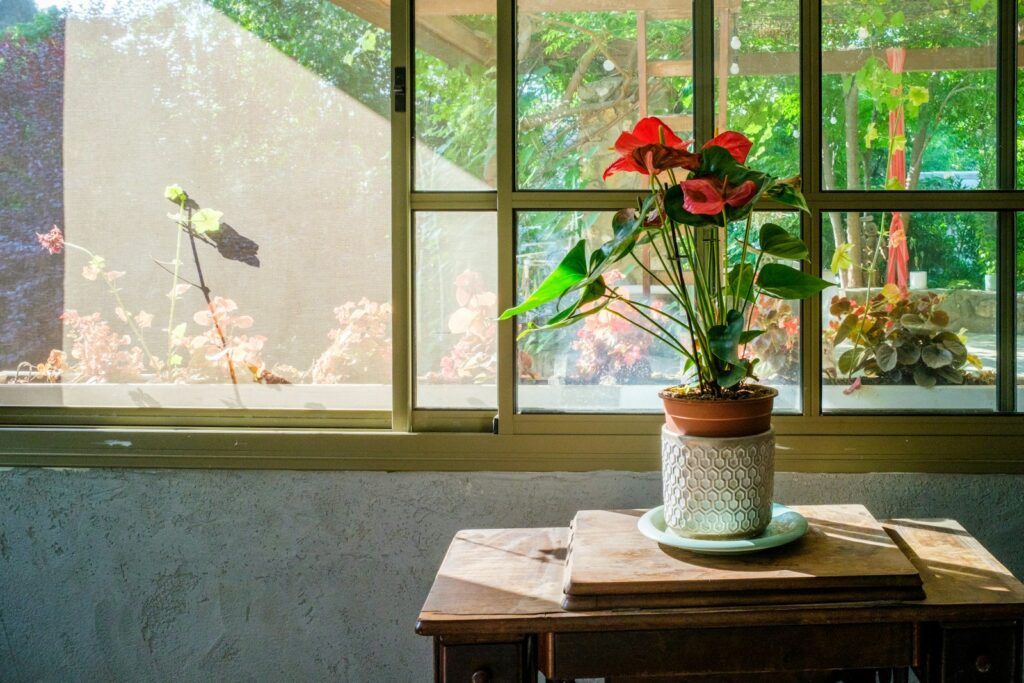
Taking care of houseplants can help lower your stress and calm your mind. Simple actions like watering your plants or focusing on their needs engage your senses and bring your attention to the present moment.
These effects come from both physical changes in your body and mental focus.
How Watering Plants Reduces Stress
When you water your plants, your body can actually respond with lower heart rate and blood pressure. This physical change helps you feel calmer.
Studies show even brief time spent with plants results in a measurable drop in stress markers like cortisol. The act of watering is also gentle and rhythmic.
This repetition helps your brain slow down from busy thoughts. The sound and feel of water gives a soothing sensory experience.
You also get a sense of accomplishment. Watching your plant drink water and thrive gives a small boost to your mood.
This connection to growth and care reduces feelings of anxiety.
Role of Mindfulness in Routine Plant Care
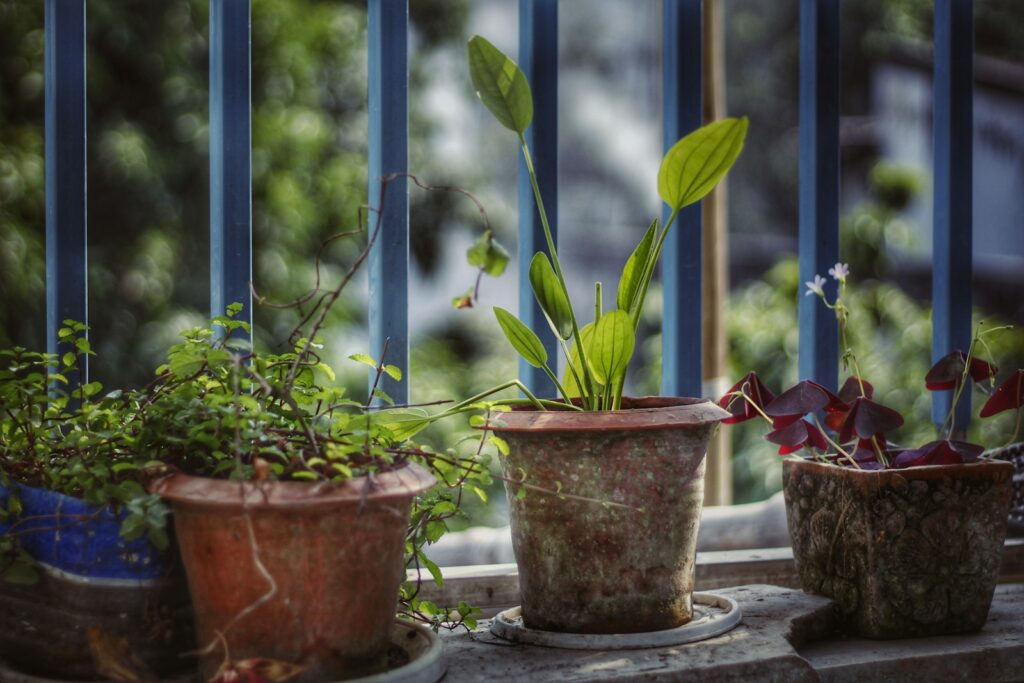
Caring for plants invites you to focus fully on simple tasks. You notice the leaves, soil, and moisture levels.
This “mindfulness” slows your mind and pulls you away from stress. By paying attention to the needs of your plant, you train your brain to stay present.
This practice lowers tension and anxiety by reducing distracting worries about the past or future. Your daily plant care routine becomes a calm moment.
It can remind you to breathe slowly and appreciate small progress.
Long-Term Mental Health Benefits

Watering and caring for houseplants can help you develop steady habits that support your well-being. It also builds emotional connections that bring positive feelings over time.
These effects go beyond simple relaxation and can improve your mental health in lasting ways.
Building a Consistent Self-Care Practice
Caring for houseplants regularly creates a routine that encourages daily mindfulness. This routine gives you a clear reason to pause and focus, which can reduce stress and increase calmness in your day.
You engage your senses by touching the soil, smelling the leaves, and watching the plants grow. This sensory connection helps your brain switch from worry to care.
Keeping plants healthy requires attention and patience. This steady responsibility can boost your confidence and give you a sense of achievement when your plants thrive.
Enhancing Emotional Wellbeing Through Connection

There is something special about having houseplants around. They offer a simple way to connect with life, which can ease feelings of loneliness.
Caring for a living thing gives many people a sense of being needed and valued. Watching your plants grow brings a feeling of pride and satisfaction.
This gentle connection can help lower stress hormones. Knowing that your plants depend on you often encourages a peaceful mindset.

